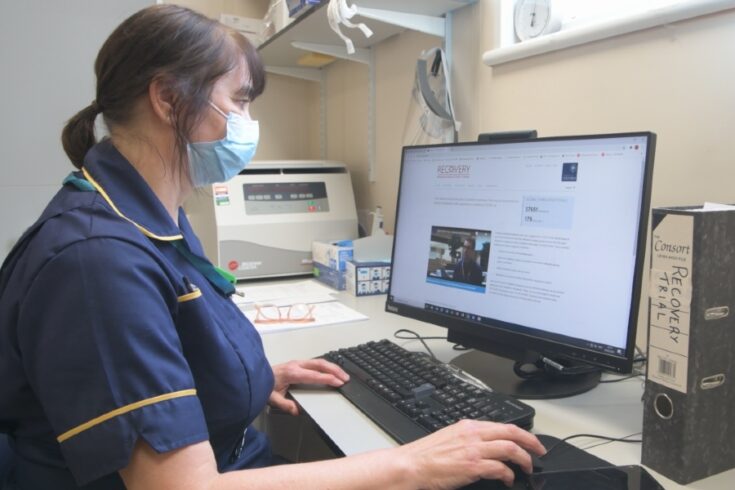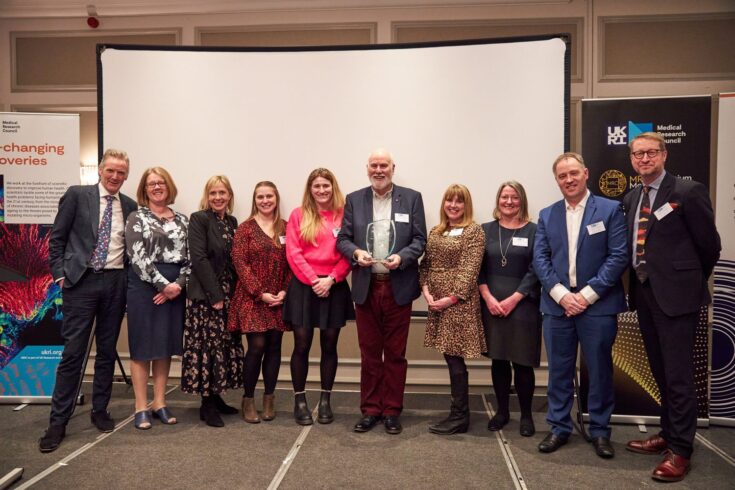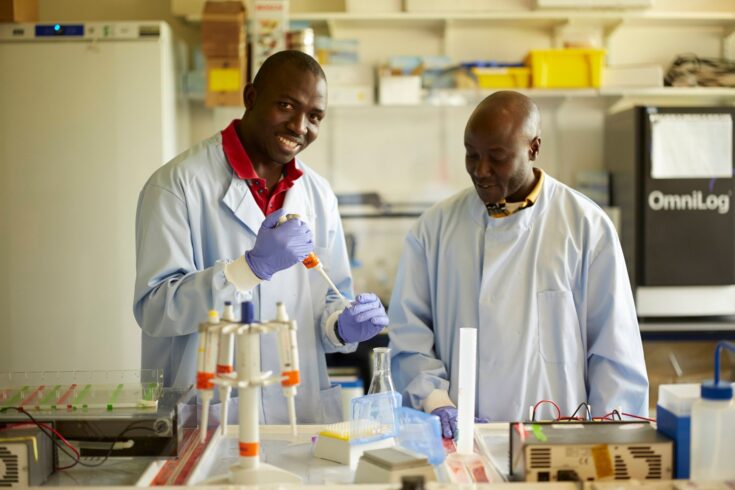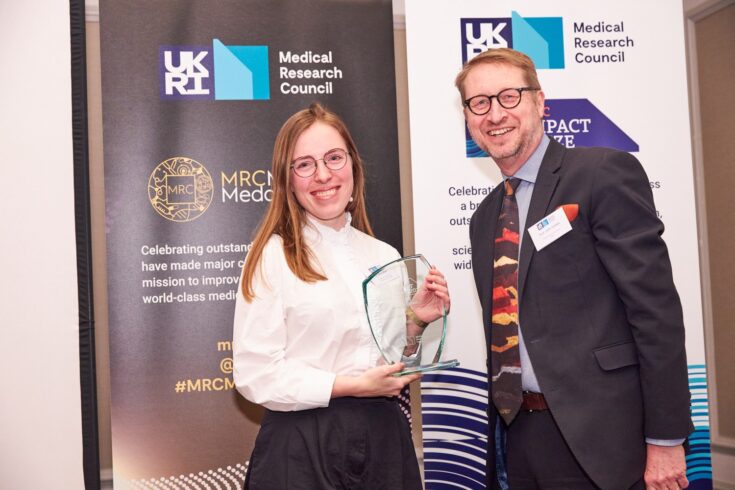In December 2022, we published a blog post about the importance of a positive research culture and the Medical Research Council’s (MRC) commitment to building one.
Last year, I was delighted to lead the development and launch of our new MRC Impact Prize. Via this prize, we aim to recognise the incredible impacts that individuals and teams across different stages of their careers make to improve the wider research environment and culture.
We received over 40 nominations from 26 institutions across the UK and internationally. The MRC Prize Committee selected the winners and highly commended entries of the prize, and we announced the winners at the MRC Prizes 2022 awards ceremony on 14 March 2023.
I was truly inspired to hear about the incredible and diverse range of impacts made across the MRC community. These included the advancement of open science and of team science as well as the work of early-career researchers (ECRs) that are trailblazing change across research culture.
Tackling key health challenges through the power of team science
Team science is essential for research to address the world’s most pressing health challenges. At the MRC Prizes 2022 awards ceremony, Professor Catherine Law CBE defined a team science approach as:
Including and recognising diversity across sectors, disciplines, backgrounds, job roles, career stages, geographies and many more in enabling key impacts. It’s an approach I’ve been proud to be part of and I have gained enormously from many colleagues in many teams.
A key example of the power of team science was our winner of the MRC Outstanding Team Impact Prize 2022, the Randomised Evaluation of COVID-19 Therapy (RECOVERY) trial. The team, led by University of Oxford, used a multidisciplinary approach including support from staff in the NHS, pharmaceutical companies, funders including MRC, amongst others. The trial included over 48,000 participants, and many thousands of doctors, nurses, pharmacists, and research administrators at 200 hospitals.
Incredibly, this team science approach enabled the trial of COVID-19 therapies to be deployed in UK hospitals rapidly, only nine days after the idea was first conceived. The trial quickly discovered that a treatment called dexamethasone reduced deaths by up to a third in the sickest patients. In the following nine months, this result saved an estimated million lives worldwide and has redefined how clinical research is undertaken.
I think that this really is a shining example of the power of bringing together a diverse and multidisciplinary team to make a major global impact in addressing COVID-19.

A nurse looks at the RECOVERY trial website. Credit: Cambridge University Hospitals
Making strides towards advancing open science and research integrity
Open science relates to the way that research is performed and knowledge is shared transparently and collaboratively based on the principle that research should be as open as possible. At the MRC Prizes 2022 awards ceremony, Professor Malcolm Macleod commented:
Open science is critically important. It allows the research community to benefit from current scientific findings, increases the efficiency and quality of research, allows for expansion of innovation and sharing, and escalates collaboration.
I was delighted to see the MRC Open Science Impact Prize 2022 awarded to The COMET (Core Outcome Measures for Effectiveness Trials) Initiative. The initiative is revolutionising the way that clinical trial outcomes are shared and reported.
A key challenge within clinical trials is that some studies measure and report different outcomes for the same conditions. This makes it challenging for results to be compared and interpreted for clinical care. The team have progressed in this area by raising awareness of these challenges and by developing a database of standardised sets of reportable outcomes, known as ‘core outcome sets’.
These advise the minimum outcomes that should be measured and reported in a specific health condition. The COMET Initiative have since developed a public and searchable database containing over 900 sets of outcomes. This enables researchers, medical professionals and the public to easily view which clinical trial outcomes are recommended as measures.
This initiative is making key advancements in improving the quality of research-based knowledge globally, making it more useful to decision makers.

The COMET Initiative Team receiving the MRC Open Science Impact Prize 2022 at the MRC Prizes 2022 awards ceremony. Credit: Joel Knight
Critical role of ECRs in enabling a supportive research environment
Around the world, ECRs are working to improve research culture and practice by addressing systemic challenges. Professor Sharon Peacock CBE at the MRC Prizes 2022 award ceremony commented:
The impacts that ECRs make to advance the work of others has numerous merits in making science an expansive and supportive environment. ECRs that pioneer initiatives to improve the wider research culture and environment are critical to systemic reform and improvements in working conditions for everybody.
I was personally inspired by the two outstanding ECRs who were both awarded the MRC Early Career Impact Prize 2022, including:
- Dr Segun Fatumo, MRC/Uganda Virus Research Institute and London School of Hygiene and Tropical Medicine Uganda Research Unit
- Dr Amy Orben, MRC Cognition and Brain Sciences Unit at University of Cambridge
Both have made incredible impacts to improve research culture, ranging from advancing equality, diversity and inclusion in research and advancing open science.
Dr Segun Fatumo was recognised for being a key pioneer of and major advocate for improving inclusion of Africa in research. It is a widely known challenge that African populations are vastly underrepresented in genomics research, which critically limits the application of precision medicine to individuals of African ancestry.
Only two years into his fellowship, Segun has already made enormous strides towards improving these challenges. By leading The African Computational Genomics research group, Segun is pioneering genetic risk predictions in African populations within several conditions (including diabetes and kidney disease). His team’s findings are already revealing significant differences from European populations. Segun has also been a key advocate for representation and inclusion of Africa in genomics, with his work and advocacy being featured in several media platforms.

Dr Segun Fatumo in the laboratory. Credit: Dr Segun Fatumo
Dr Amy Orben was also jointly recognised with this prize for her impacts in advancing open science and reproducibility. She has achieved this via a number of approaches, both locally and more widely.
Amy co-founded the ReproducibiliTea journal club, which allows ECRs to meet to discuss papers about open science, research culture and practices within their local universities. Incredibly, this programme has expanded to over 20 countries and at more than 100 universities worldwide. I think this is a testament to Amy’s drive and determination to improving open science and research culture for the better.

Dr Amy Orben receiving the MRC Early Career Impact Prize 2022 at the MRC Prizes 2022 awards ceremony. Credit: Joel Knight
A forward look to 2023
A positive research culture is essential to deliver excellent research. I am delighted that the MRC Impact Prize 2022 has been able to recognise the wide-ranging impacts that our research community makes.
Nominations for the MRC Impact Prize 2023 competition are now open for organisational nominations and will close at 4:00pm on 30 June 2023. Winners receive a financial award of up to £20,000 to advance or widen the outreach of the impact or to improve the learning and development of the nominee or nominees.
I am looking forward to reviewing the 2023 nominations and continuing to recognise those outstanding people and groups who are positively contributing to a vibrant research and innovation system.
For further details on eligibility and how to submit a nomination, please visit: MRC Impact Prize or contact impactprize@mrc.ukri.org




